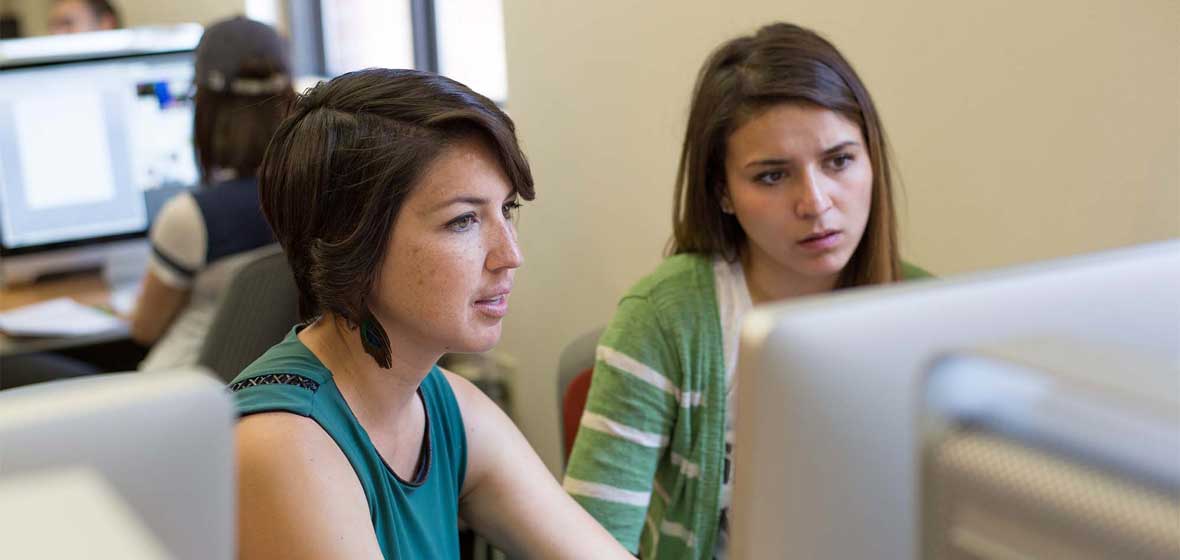If you’re familiar with the Reynolds School, then you know we stress the importance of talking to your professors outside of class. However, talking to your professors can be hard if you’ve never done it before, and sometimes, students ask questions that aren’t actually helpful (or worse, are already listed on the website). So, we asked a few Reynolds School professors what questions they love getting and ones they wish students didn’t ask. Whether you’re intimidated by your instructors or just don’t know where to begin, here’s a list of dos and don’ts to start the conversation.
DON’T ask: “Can you explain this assignment?” DO ask: “How long are you expecting this assignment to be? I checked the syllabus but didn’t see anything about a word count.”
When asking about an assignment, have specific questions that show you’ve put thought and effort into attempting to understand it. Otherwise, as Alison Gaulden said, “it wastes precious time.”
When a student came to her with a specific question about a software issue he was having, Paromita Pain said it was easy to help, “because he was so clear in what he wanted and had proof that he had tried his best.”
Vanessa Vancour echoed Pain. “So many students feel it is up to me to explain everything in great detail, but in a real job experience, if your boss doesn’t explain a task in a way that resonates with you, it is your responsibility to seek clarity before completing said task.”
Specific questions allow professors to give you specific answers, which is far more likely to help you succeed.
DON’T ask: “What do I have to do to get an A?” DO ask: “I’m really curious about something you mentioned in class last week. Could you talk to me more about it?”
The first question makes it clear all you care about is the grade, not the professor. Donica Mensing said faculty love to expand on the ideas they share and to meet genuinely curious students. By expressing genuine curiosity about a topic you liked in class, you’re showing that you’re paying attention.
DON’T ask: “What do I need to do graduate?” DO ask: “What courses/internships do you recommend based on my interests?”
This question has a lot of crossover with some of the others, as it can easily transition into a conversation had from the other questions on this list. Also, nearly everything you need to know about fulfilling your degree requirements or internships can be found on our website. Don’t waste your professor’s time with questions that can easily be found with a little research.
DON’T ask: “Can you help me find a job?” DO ask: “What can I do to prepare myself for my first job?”
Paul Mitchell shared a story of a student who asked for connections in major cities but didn’t have the resume experience to work in a Reno-sized market. “Put in the work to understand the demands of where you want to work, where you want to live and what type of skillset is needed.” With fewer journalism jobs out there, he said, preparation beforehand, like internships, is key.
You can also bring up career options while talking about job preparedness. “Even if they just want to talk about options after graduation, we can usually help with thinking of pros and cons associated with different choices,” Ben Birkinbine said.
DON’T ask: “Hey professor that I’ve never talked to outside of class, can I have a letter of recommendation?” DO ask: “What got you into journalism/public relations/design?”
Vancour said she wished students took more time to establish real relationships with professors. “That way, when they ask for a letter of recommendation,” she said. “I am more likely to remember them and might be more likely to recommend them if I feel like we have a rapport and I have a better sense of their character.”
On the other side, Mitchell said one of his biggest pet peeves was when students say they put him down as a reference without asking him beforehand. Communicate with professors before a deadline if you’re looking for references on an application.
Talking to professors may be intimidating at first, but as Mensing said, “it really is an excellent way to take more ownership for your education.”
Beyond recommendation letters or networking for a potential job, connecting with your professors allows you to take advantage of everything the Reynolds School has to offer. So grab your phone, look up your professor’s email and ask them if you can swing by later this week.












